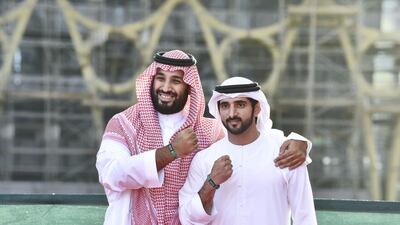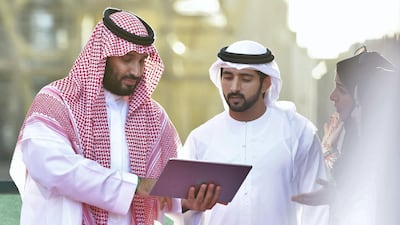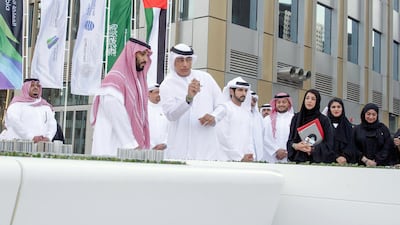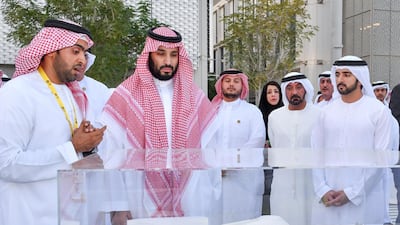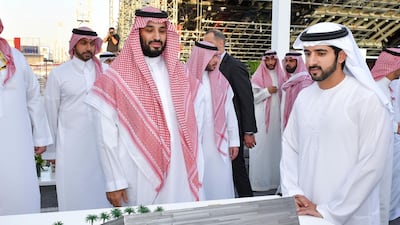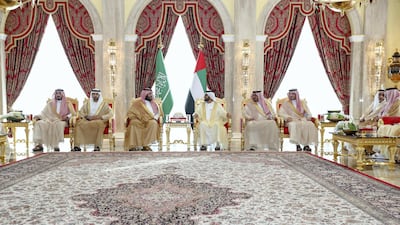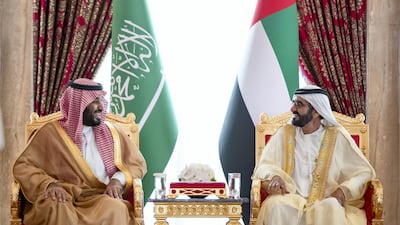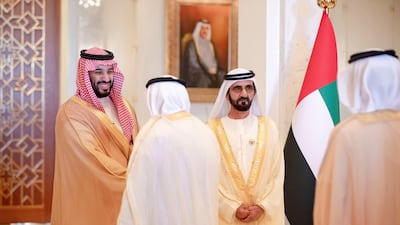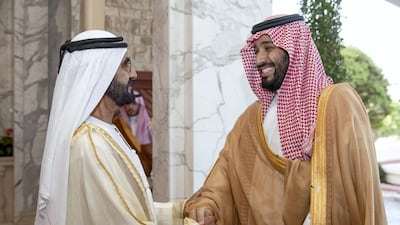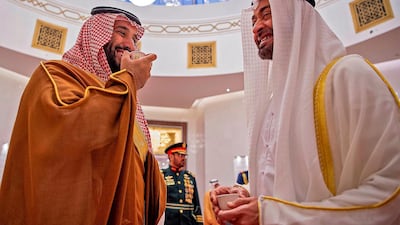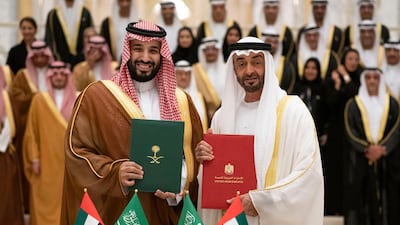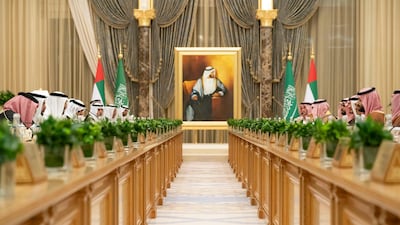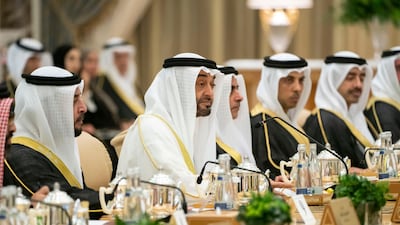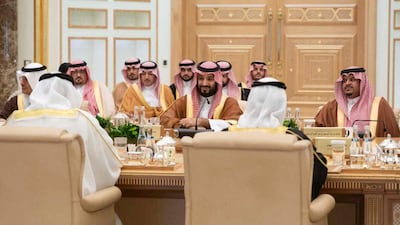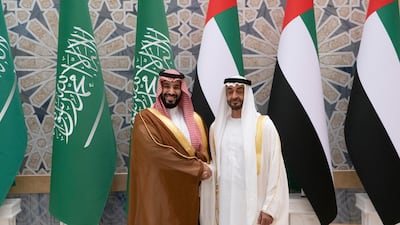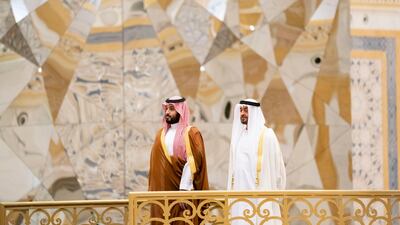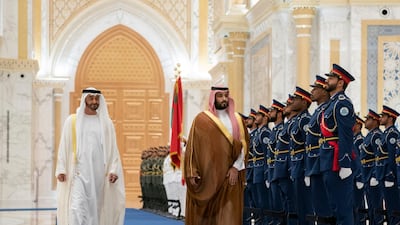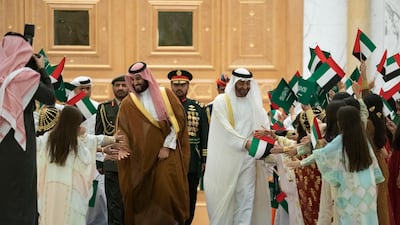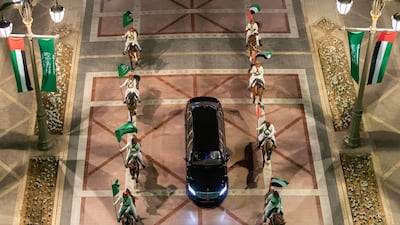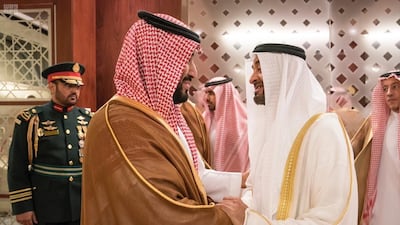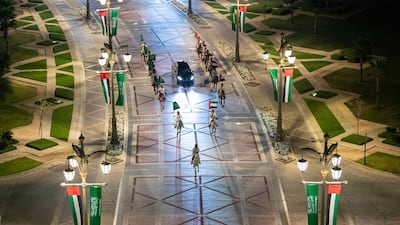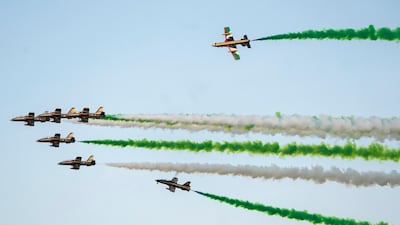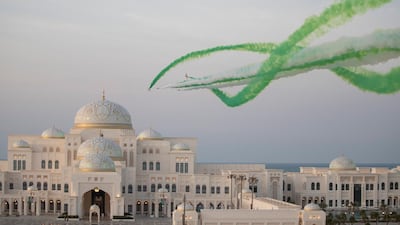Friends, brothers and "two nations with one pulse": that's how leaders of the UAE and Saudi Arabia have described the breadth and depth of their long-standing relationship. These neighbours have much in common, of course, including a shared culture, faith and language. They have also maintained trading links going back centuries. However, rich and dense as those ties might already be, the two nations continue to seek opportunities to deepen this relationship – due in large part to a shared sense of destiny as they work together in tackling 21st century challenges.
Some of those challenges, from seeking regional security to fighting extremism, as well as opportunities such as a common digital currency, were discussed this week by two leaders whose personal relationship embodies the upbeat mood in relations between the nations they represent. When Sheikh Mohamed bin Zayed, Crown Prince of Abu Dhabi and Deputy Supreme Commander of the Armed Forces, welcomed Mohammed bin Salman to his "second home" in Abu Dhabi for the Saudi crown prince's state visit on Wednesday, it was as a "brother". While being personally close, diplomacy and soft power also play an important role between the two nations, given their shared vision of a peaceful, tolerant, outward-looking and vibrant Middle East and their collective determination to achieve this dream.
There is no doubt that the UAE and Saudi Arabia are both undergoing tremendous change, be it in economic or cultural spheres. The Emirates, for instance, is preparing for the Fourth Industrial Revolution, characterised by a shift toward automation, artificial intelligence and the Internet of Things. It is also easing employment and visa rules, welcoming in even greater numbers of foreign entrepreneurs and workers to the country. Saudi Arabia, meanwhile, is opening its doors to international tourists while gradually lifting restrictions in a previously conservative society. While these reforms tend to be viewed in isolation, they reflect the shared ambition of the two leaderships to catapult their countries, and hopefully the region one day, into the future.
The two countries are also working in tandem in areas such as defence and the economy through the framework of the Saudi-Emirati Co-ordination Council, created three years ago with the aim of bringing closer co-operation between the two countries in areas such as defence, politics and culture. Four new partnerships were announced this week, chiefly among them an agreement to build a massive oil refinery with a capacity of 1.2 million barrels a day on the western coast of India. The project, linking Abu Dhabi's Adnoc and Saudi Aramco as partners, is expected to cost about $70 billion. There are also plans to create a cryptocurrency to enable trading between banks in the two countries. The digital venture was one of seven strategic initiatives originally drawn up by the council in January and including plans such as a joint tourist visa for residents of both countries and speeding up the flow of traffic at the ports.
Regional security and stability is a key focus uniting the countries as they project a collective voice of moderation and a narrative to the world that runs counter to Iran’s imperial, discordant ambitions of regional hegemony. They have presented a unified front on important issues facing the region over the years, including the oil embargo imposed on the US for supporting Israel in the 1972 war, committing troops to help liberate Kuwait in 1990 and the need to restore the legitimate government in Yemen. Both countries have stood side by side and, on occasions, fought together, to defend their core principles.
This weekend, as the UAE observes Commemoration Day in tribute to the fallen soldiers who have given their lives in service to the country, the Emirates and Saudi Arabia will be looking ahead to greater dialogue and co-operation on defence, especially in cybersecurity. During the state visit, they also found common ground on several regional issues, including conflicts in Palestine, Egypt, Syria, Iraq and Yemen. These are important steps, given that it requires a strong alliance to respond effectively to ongoing threats posed by the regime in Tehran and terrorist organisations such as ISIS on the other.
Such a partnership also affirms the unity of the Arab world and counteracts the spread of extremism by amplifying the voices of moderation.

